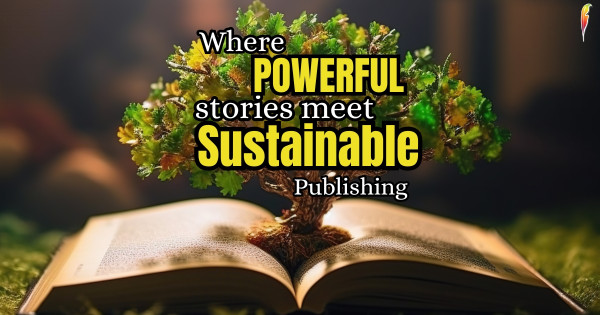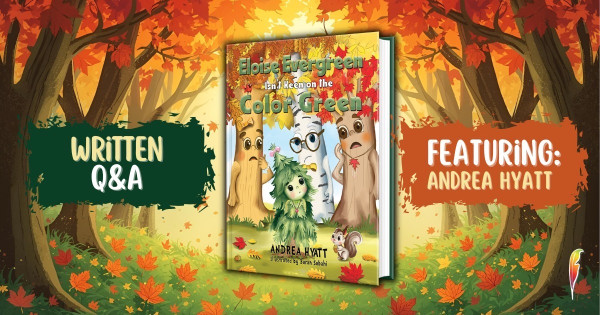.jpg)
Genre vs. Subgenre: A Complete Guide for Writers
Did you know - Over 70% of readers choose books based on genre labels — so yes, genres and subgenres do matter.
But even before your book reaches the hands of a reader, it must find its place on the shelf, and for that, you must understand the difference between genre and subgenre. A genre is a broad category your book falls into, such as fantasy, romance, or maybe a thriller. A subgenre adds more depth as it helps to refine the story’s tone, theme, and focus.
Lately, writers have been mixing genres to create new ones. One of the most popular examples is romantasy (a mix of romance and fantasy), and guess what, some of these made it to bestseller lists and have been trending on BookTok too. Getting the genre of your book right plays a massive part in how your book is positioned, marketed, and seen. In this blog, we will discuss all these things in detail and help you choose the correct label for your next book.
What is a Book Genre?
A book genre is a broad category. It helps describe the overall style, tone, and subject of the story. In simple words, it tells readers what they should expect from your story. Genres shape the way a story is told.
If you know the types of book genres, then it can help you structure your book the right way and attract more readers. Here's a list of all the book genres:
|
Fiction Genres |
Non-Fiction Genres |
|
Romance |
Biography / Autobiography |
|
Fantasy |
Memoir |
|
Science Fiction (Sci-Fi) |
Self-Help |
|
Mystery |
History |
|
Thriller |
True Crime |
|
Horror |
Health, Lifestyle & Leisure |
|
Historical Fiction |
Politics & Philosophy |
|
Adventure |
Food & Travel |
|
Literary Fiction |
Educational |
|
Drama |
Religion |
|
Crime |
Arts, Architecture & Photography |
What is a Book Subgenre?
If genre sets the stage, the subgenre adds the minor details. So, what exactly is the difference between genre and subgenre? It's a more specific category within the genre, more like a sub-category that defines the tone and plot elements within the story.
Let's make it even simpler...
Genre tells you the type of story - Mystery, Romance, or thriller.
Subgenre makes it more specific - Dark Fantasy, Sci-Fi Thriller, or Romantasy.
A reader might pick up two crime novels—one legal crime and the other detective crime. While they share the same genre, it's the subgenre that tells they are two very different types of stories.
In recent years, hybrid subgenres like sci-fi horrors and romantasy have become hugely popular, and this shows how flexible storytelling can be, while fitting in the broader genre vs subgenre framework.
Why Authors Should Understand Genres and Subgenres?
These two terms matter a lot if you want to publish your own book. Here are a few reasons that could make a lot of difference.
-
It makes your Books more discoverable.
Readers often choose books based on their genre, both in bookstores and online. Labeling your book correctly means it shows up in the right searches and recommendations.
-
It helps define your Audience.
If you understand your book’s category, choosing the right genre becomes much easier and once you have a genre, you know the audience you've been writing for, and that helps you connect better with them.
-
Your Book Design and Marketing Strategy.
Your chosen genre impacts everything. The cover design of your book, its marketing angle, and related decisions.
-
Shape your Blurb and Messaging.
The blurb of a thriller will sound very different from that of a romantic comedy. If you understand the difference between a genre and a subgenre, then you have a better chance at landing your pitch.
Book Genre and Subgenres with Examples
If you don't know how to choose a book genre and how genres divide into subcategories, then here are some of popular genres and their sub-genres to help you pick the perfect one for your story.
Thriller
Fast-paced, tension-driven stories meant to keep readers on the edge of their seats.
Popular Subgenres:
-
Psychological Thriller
-
Political Thriller
-
Techno-Thriller
-
Spy Thriller
-
Medical Thriller
Crime
Focused on Criminal Acts, Investigations, or the legal system.
Popular subgenres:
-
Legal Crime
-
Police Procedural
-
Detective Fiction
-
Cozy Mystery
-
True Crime
Romance
Centered on Love, Relationships, and Emotional Journeys.
Popular subgenres:
-
Romantic Comedy
-
Historical Romance
-
Contemporary Romance
-
Paranormal Romance
-
Romantic Suspense
Fantasy
Imaginative worlds with magical systems, mythical creatures, or supernatural elements.
Popular subgenres:
-
High Fantasy
-
Dark Fantasy
-
Urban Fantasy
-
Romantasy
-
Sword and Sorcery
Read more about mixed genres in our Fantasy Book Blog
Science Fiction
Stories based on futuristic tech, space exploration, or alternate realities.
Popular subgenres:
-
Dystopian Sci-Fi
-
Space Opera
-
Cyberpunk
-
Time Travel
-
Hard Science Fiction
Check out the Science Fiction Blog to learn more about this.
Erotica
Explores human relationships and desire, often with mature or intimate themes.
Popular subgenres:
-
Literary Erotica
-
Erotic Romance
-
Historical Erotica
-
Dark Erotica
To know more about this genre, visit here: Erotica Genre Overview.
How to Choose the Right Genre for Your Novel
Choosing the right genre and subgenre does not only mean giving a label to your book but also learning about your story, audience, and the market. If you are not sure how to pick a genre for your book, consider the following valuable tips to assist you in your choice:
1. Think About Your Story’s Core Theme and Tone
Is your story light-hearted or intense? Is it emotional or fast-paced? The tone and the core message in your story often make it quite clear for you to choose the right genre.
2. Know What Your Readers Expect
Knowing your audience is essential. Romance readers often look for an emotional, heartfelt love story, fantasy fans want battles between their favorite mythical creatures, and world-building. Thrillers are all about suspense. Meeting these expectations as an author builds trust you’re your readers.
3. Check Out Market Trends
Check out the top-selling books in your genre. Subgenres like romantasy or dark academia are trending right now and could help boost your book’s popularity. Keep yourself aware of the current market trends, it will help you position your book more strategically.
4. Match the Genre to Your Writing Style
If you write vivid descriptions and complex worlds naturally, fantasy or sci-fi may be your genre. If dialogues and emotions are your thing, then you might excel in modern fiction or romance.
5. Use Bookstore and Publishing Categories as a Guide
Online platforms like Amazon, Goodreads, and publisher websites offer detailed genre categories. These listings can give you a clearer idea of where your book fits. It’s an essential step in choosing the right genre for your novel, especially when submitting to agents or marketing your book yourself.
Final Thoughts
Therefore, as an aspiring writer, you should understand and get familiar with both terms (genre & subgenre). It will make your writing more focused and strategic. It gives you a clear path when you are writing your story.
As for readers, it helps them to find books of their interest and saves a lot of the hassle. Genre also plays a significant role in the marketing and promotion of your book. It doesn't matter if you are self-publishing or going through a traditional route; getting your genre and subgenre right can make all the difference and help you reach the right audience.
Ready to see where your book fits? Check Out Austin Macauley Books by Genre.
We use cookies on this site to enhance your user experience and for marketing purposes.
By clicking any link on this page you are giving your consent for us to set cookies



